
Building strong friendships is such an important part of childhood. Some of us may even still have friends we made years ago in school. If we want our own kids to foster those kinds of strong bonds, we can help them in a variety of ways. At the end of the day, it’s up to our kids to make those relationships and be good friends. But we can help pave the way.
CafeMom spoke about the topic with eight mothers who have kids of all ages. Keep reading to get their advice for promoting healthy friendships.
More from CafeMom: Laughter, Tears, and Unbreakable Bonds: Celebrating the Magic of Mom Friendships
Help Foster Early Relationships
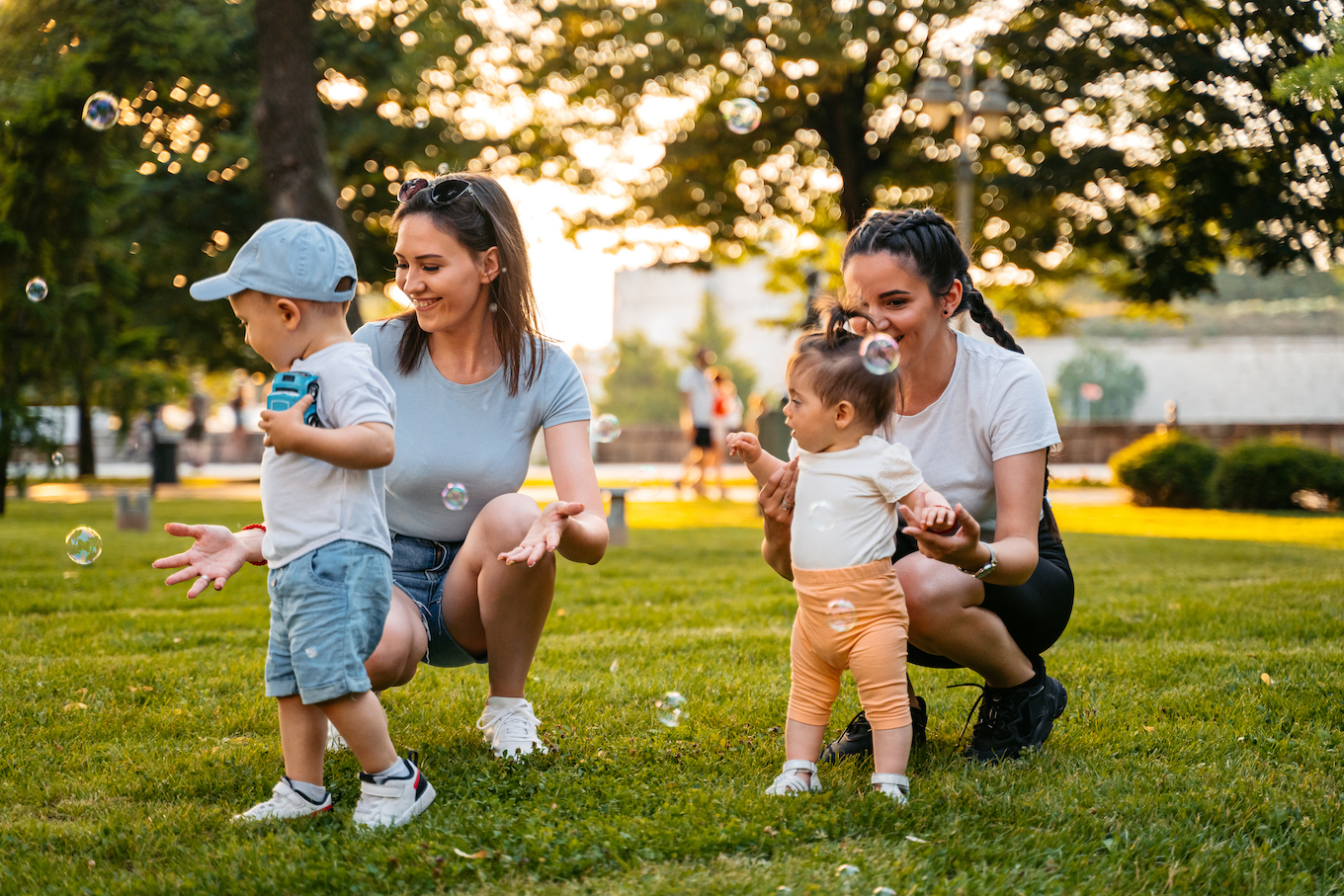
Melissa M. has two sons, ages 6 and 3½. Because they’re still young, she tries to give them a helping hand in fostering good friendships. “I try to observe who they’re playing with more on the playground — or whose names they mention regularly after school — and plan playdates or sign up the kids for the same sports to help give them extra time together,” she says.
Set an Example
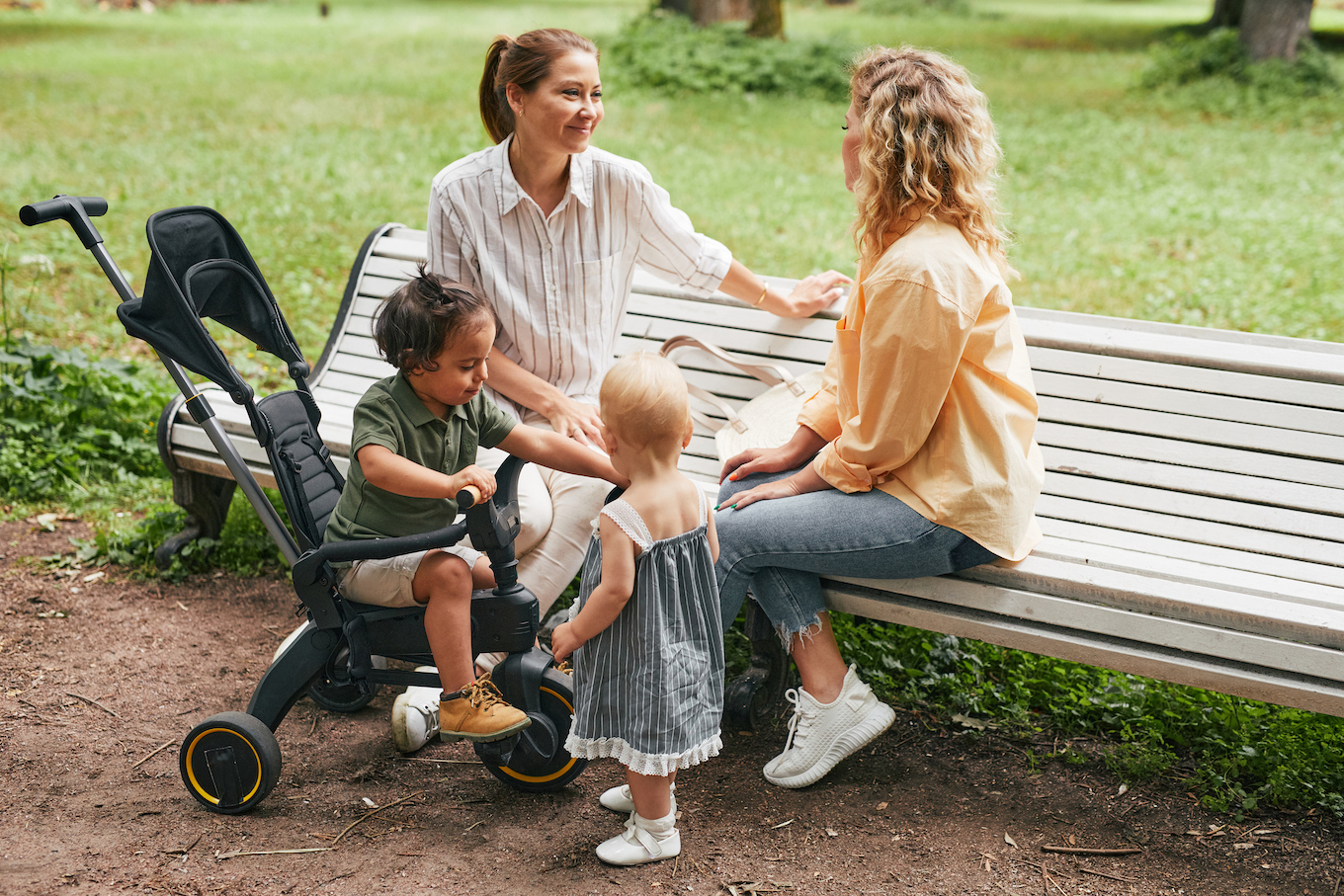
Melissa also tries to model friendly behavior for her sons to pick up on. “By making my own friends with the adults — starting with small talk, then planning nights out with some of the moms I hit it off with — I was able to help mirror things,” she says.
Use Group Settings
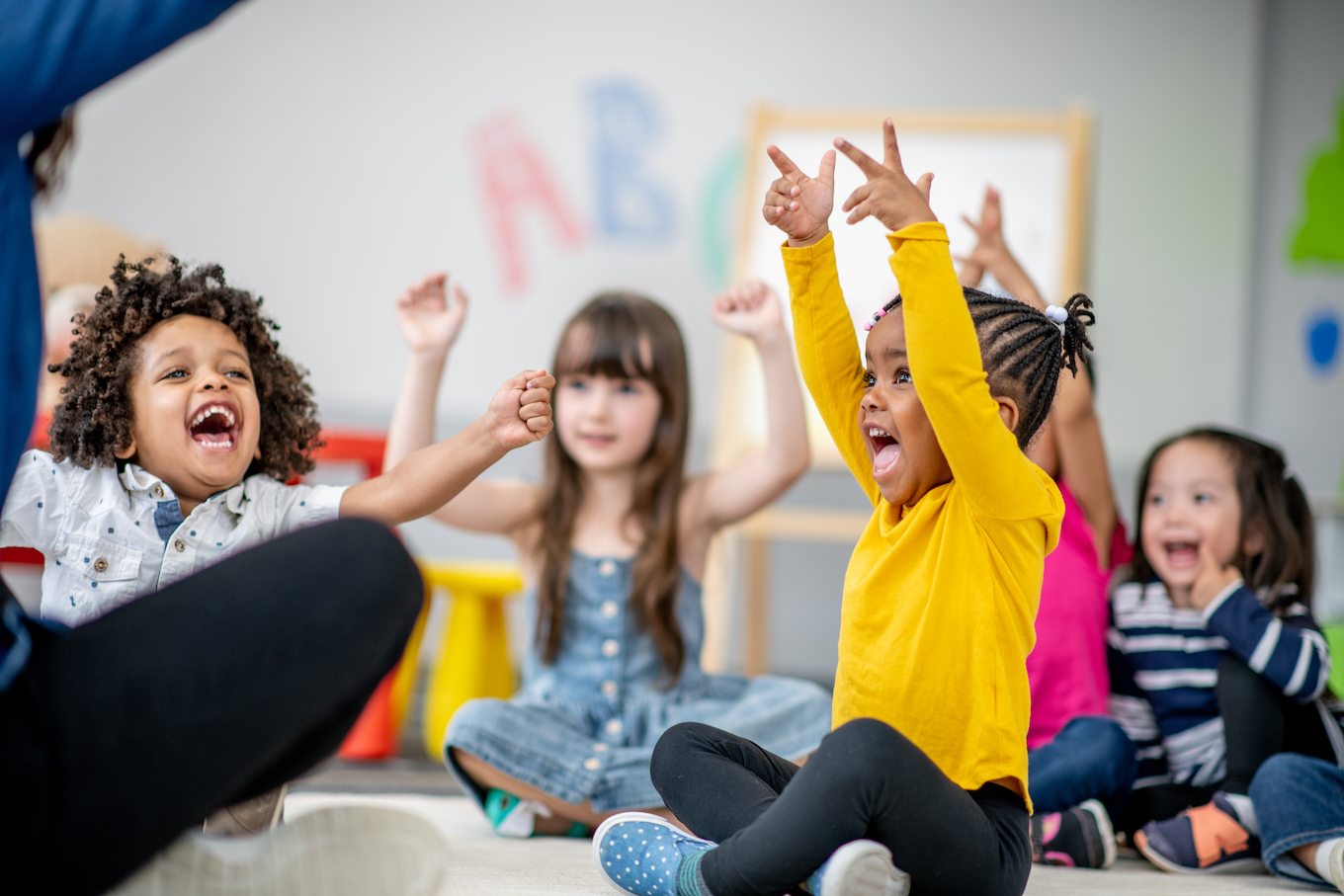
To give her 4-year-old daughter more opportunities to make friends, Ayana L. tries to encourage group settings. “I’ve leaned into playdates with other children to help her learn how to communicate well and share with other kids,” Ayana says. “I also send her to preschool, and that’s been a huge help with developing social skills and seeing her become comfortable with her friends.”
More from CafeMom: 4 Essential Steps for Sending Your Food Allergic Child to Day Care or Preschool
Support School Friendships
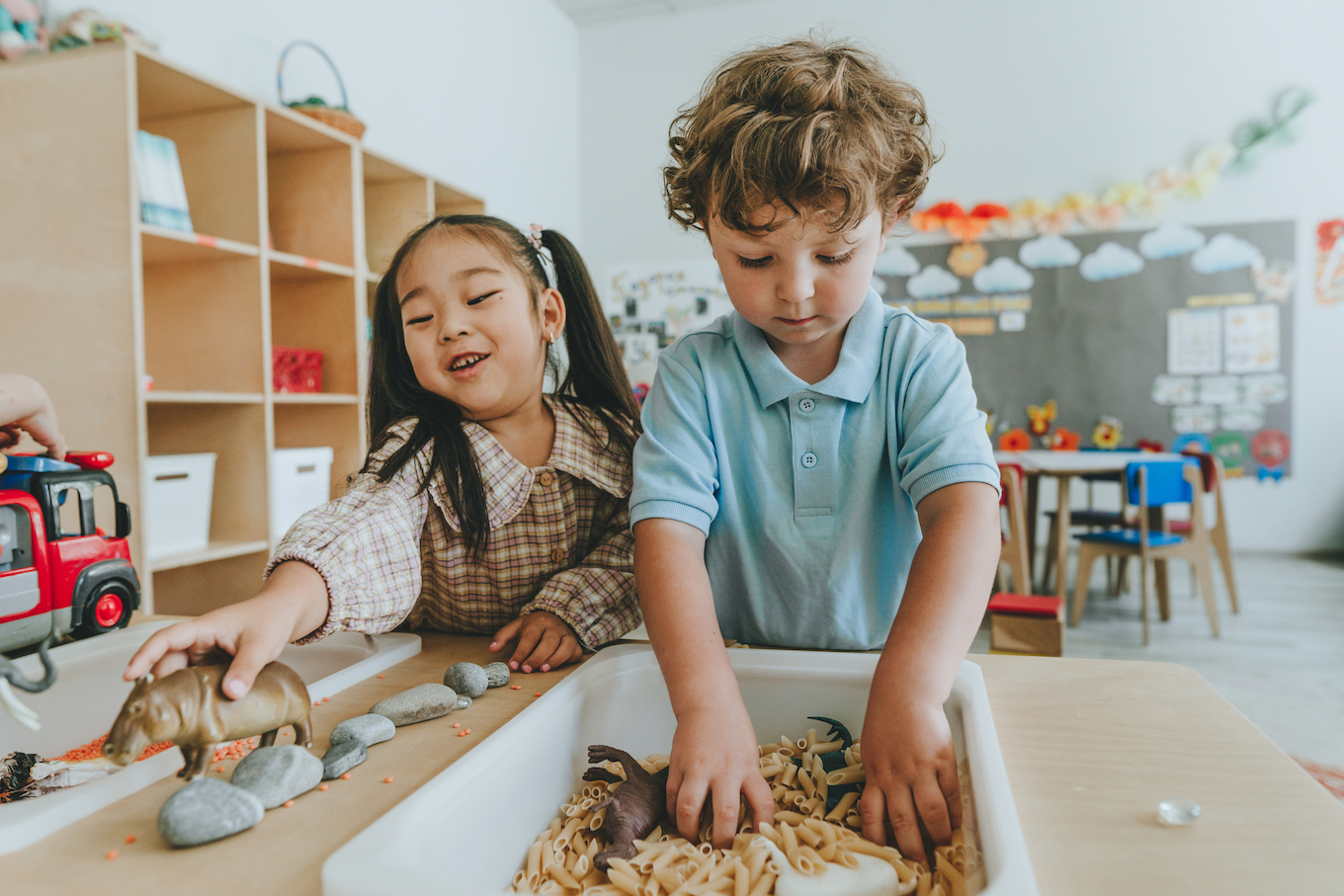
School is one of the best places for children to make friends on their own. For Kelly R., sending her son to school allowed him to gain more confidence. He was able to play and learn with the same kids day after day. “It forced him to have space away from me to seek connections elsewhere,” she says. “The way he came out of his shell was incredible and continues to make him more and more confident. He always wants to meet other kids.”
Look to Shows & Movies

Kelly also credits some of her son’s favorite TV shows like Sesame Street and Daniel Tiger’s Neighborhood with helping model positive friendships. “I feel like him even seeing those connections on screen helped him want to find that for himself as well,” Kelly says.
Encourage Diversity

Having a variety of friends from different avenues of a child’s life can help them grow. “I really encourage our girls to have a diverse group of friends,” Danielle T. tells CafeMom about raising her two daughters. “I think it’s been really beneficial for them to have friends from sports, school, our neighborhood, etc.”
Teach Empathy
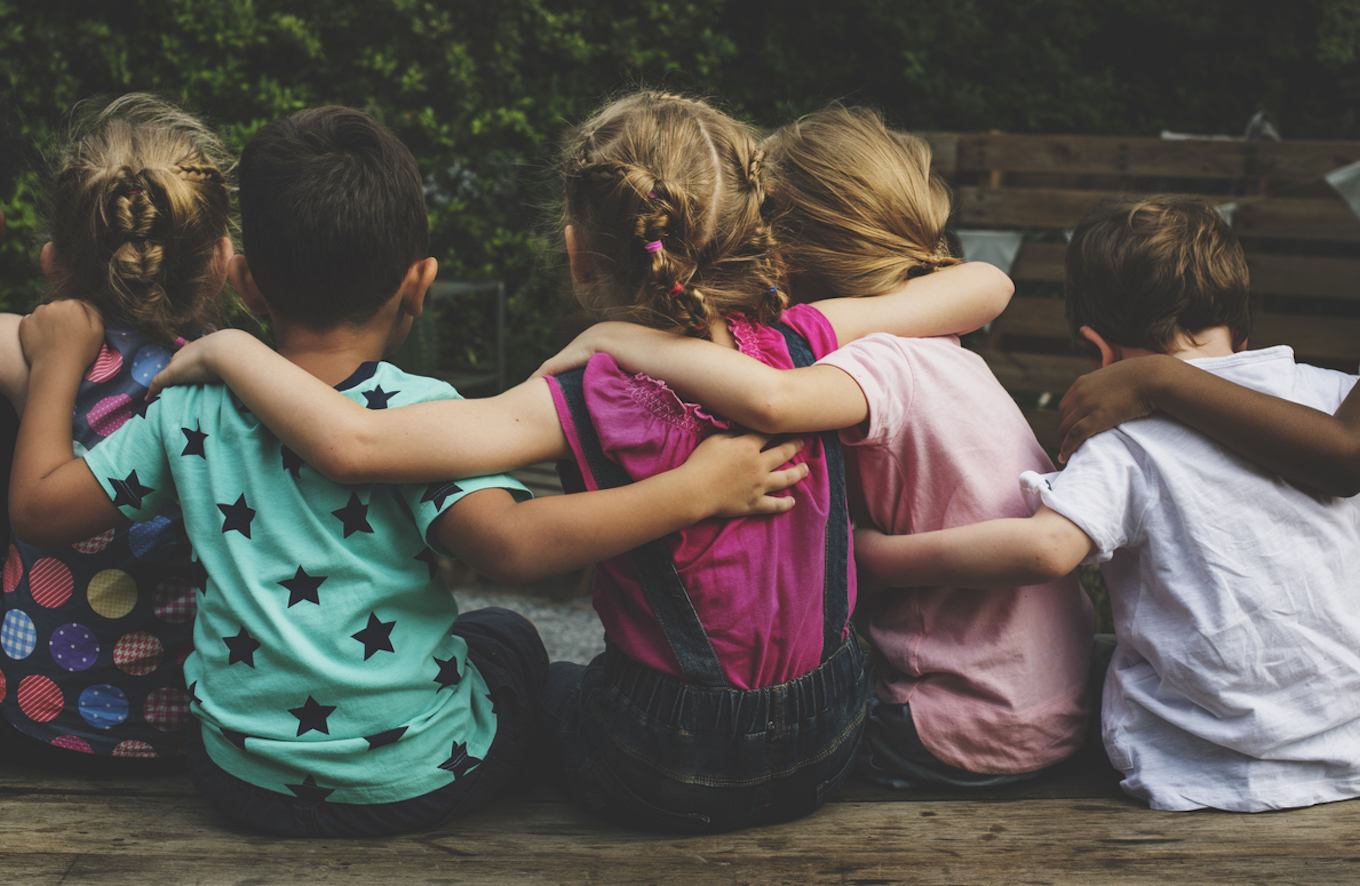
Danielle’s family is also big on the golden rule of “treating others how you want to be treated.” She says, “Kindness is everything. Going hand in hand with that is empathy … and understanding that someone may be going through something we know nothing about, so always be compassionate.”
Let Some Friendships Go
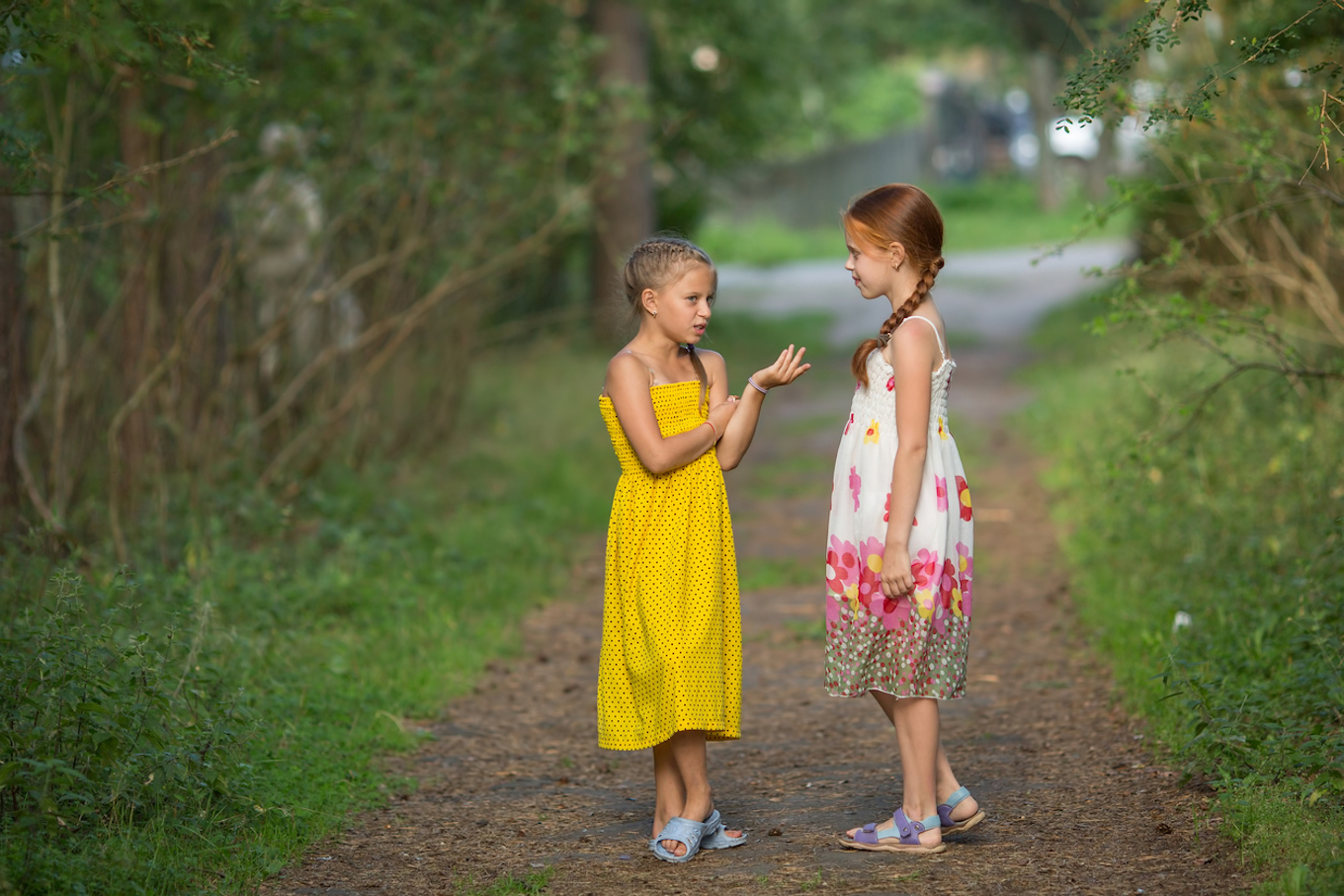
Danielle also taught her daughters that they don’t have to always stay friends with everyone. “Arguably one of the most important things is recognizing when a friendship is no longer serving them, and helping them understand that it’s OK to let it go,” she says.
After all, cutting a toxic friendship just gives the child opportunity to find friendships that are more positive and fulfilling.
Establish Boundaries
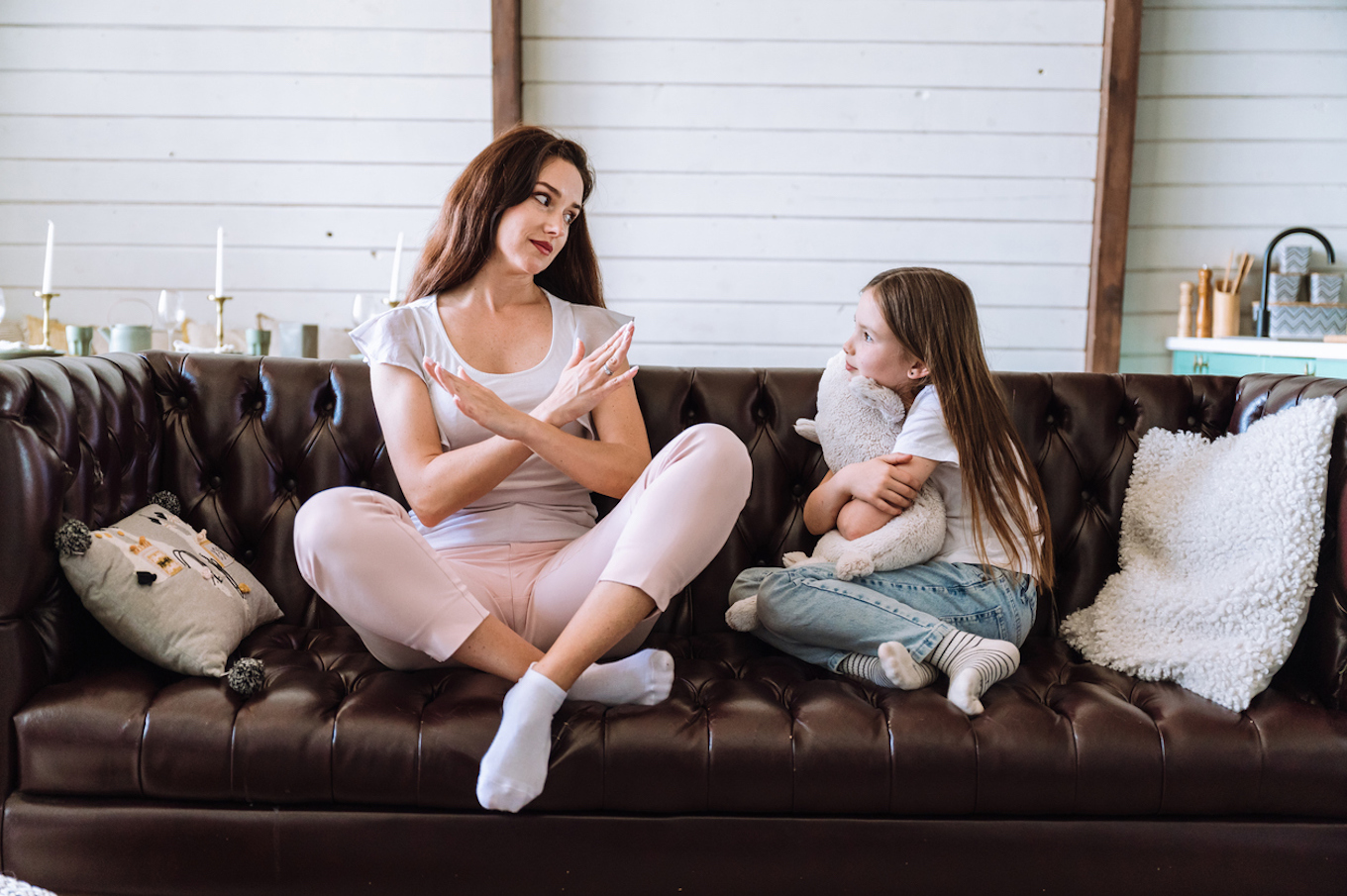
Amber Z. wanted her children to know they could set boundaries in their own friendships. “The first word I taught my children was ‘no.’ It was my top priority going into motherhood that my children knew and felt comfortable using their voice, and expressing what they are and are not comfortable with,” Amber says, adding:
“Not only is this imperative for keeping themselves safe in situations, it promotes healthy relationships where all parties can safely express themselves and use their voice in a respectful way while remaining true to themselves.”
Foster Respect

Another tip from Amber is the importance for parents to foster respect and trust with their children. “Teaching children how to be respectful starts with showing them respect,” Amber says, adding, “It is important to always get down on their level and show that you care and are listening. If you show them this, they will naturally do the same with their peers.”
Amber adds that this process includes owning any mistakes we make as parents and apologizing to our children when necessary. That way they learn how to do the same in their own relationships.
Be the Child's Friend
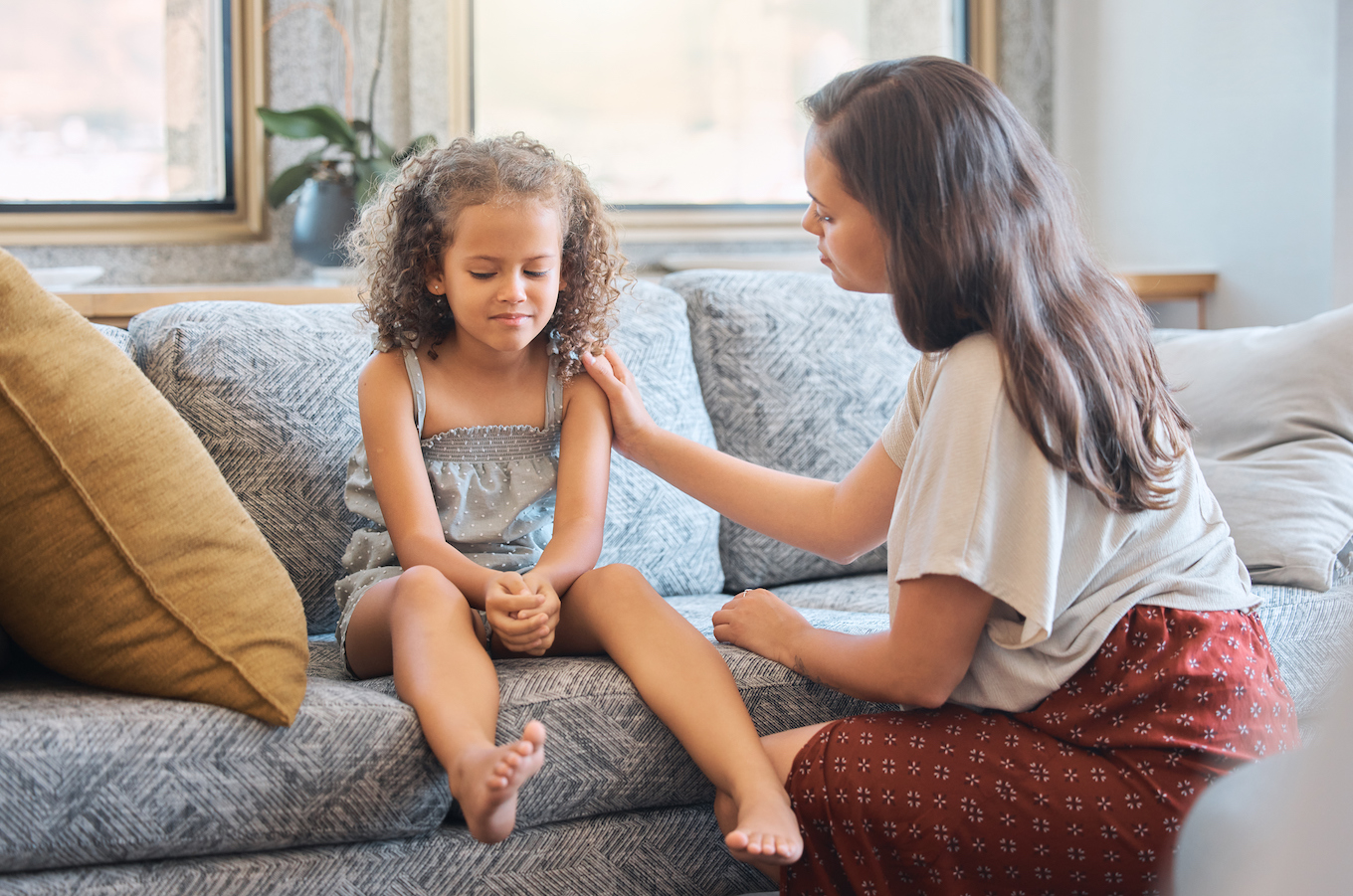
“I believe it is our duty to lay the foundation down for our children of what a healthy relationship looks like, through their relationship with us,” Amber says. “I’m sure you heard your parents tell you a hundred times growing up that they are not your friends but rather your parents. And while I agree with this to an extent, I have found that it is important to balance being a friend and a parent to your children.”
Accept Differences
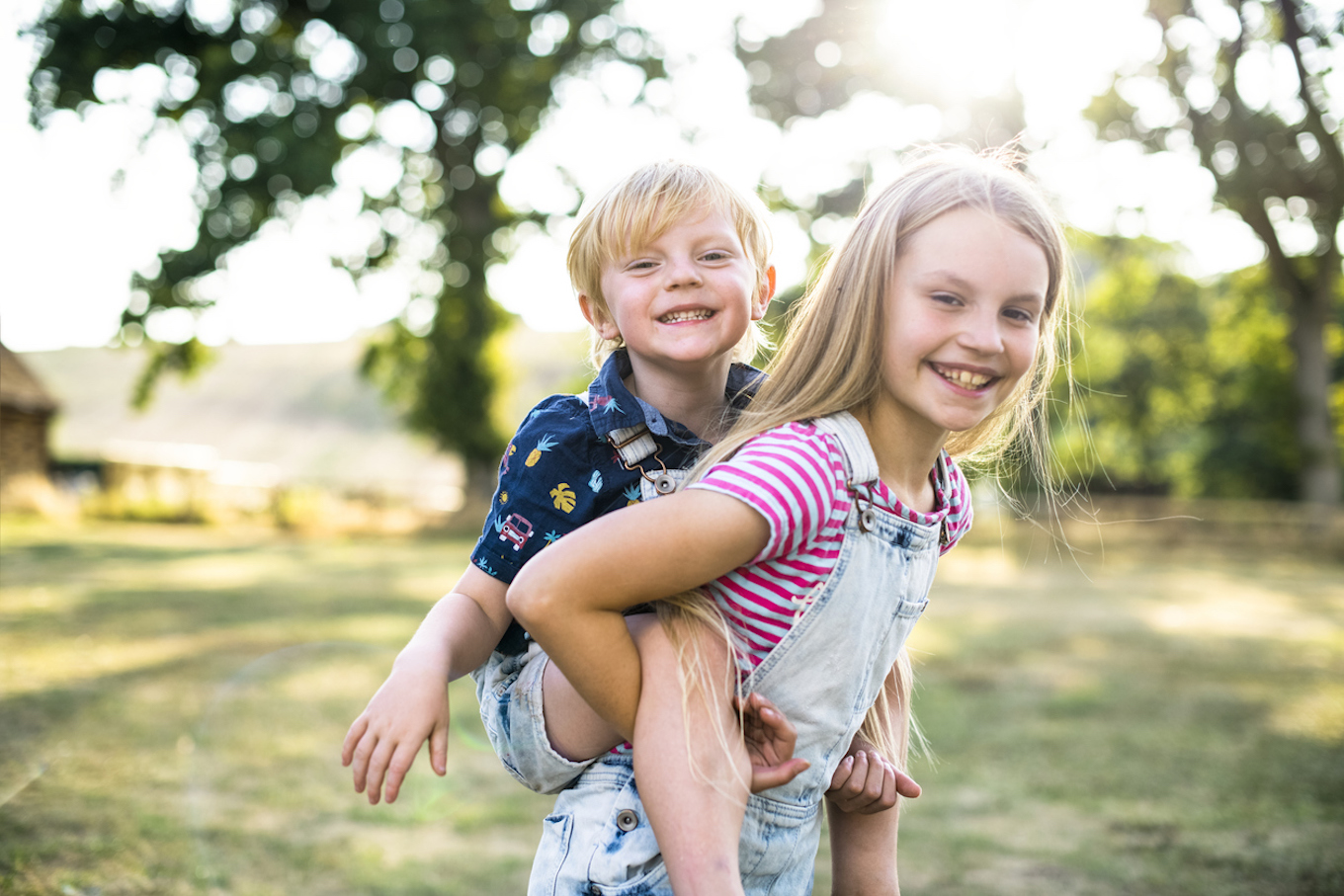
Lori T. found that her daughter and son approached friendships very differently. So what works for one child may not for the other. “Gabbie was motivated by the more people around the better and would connect with many very quickly,” Lori says. “Sam was more tentative and approached friendships with a reserved and measured pace.” So she and her husband made sure “each kid’s approach was protected as special and significant, even though polar opposite.”
Encourage Inner Happiness

When it came to making friends, Krystina K. taught her kids to “know and love themselves first.” She says, “We have always encouraged and taught the kids to find happiness within themselves and to do what they enjoy, regardless of what others think.” That’s always a great place to start.
Explore Passions

Krystina adds that she wants her children to explore their own passions and find friends that way. “My daughter really enjoys [Dungeons & Dragons], and when she found out they were forming a club at their school she was really excited to join,” she says.
She adds that her daughter hesitated because none of her current friends were in the club. “I told her we would do whatever made her happy, but I think she could make even more friends while doing something she loves,” Krystina says. “She ended up joining … and of course made friends with the whole group.”
Spend Time With Friends
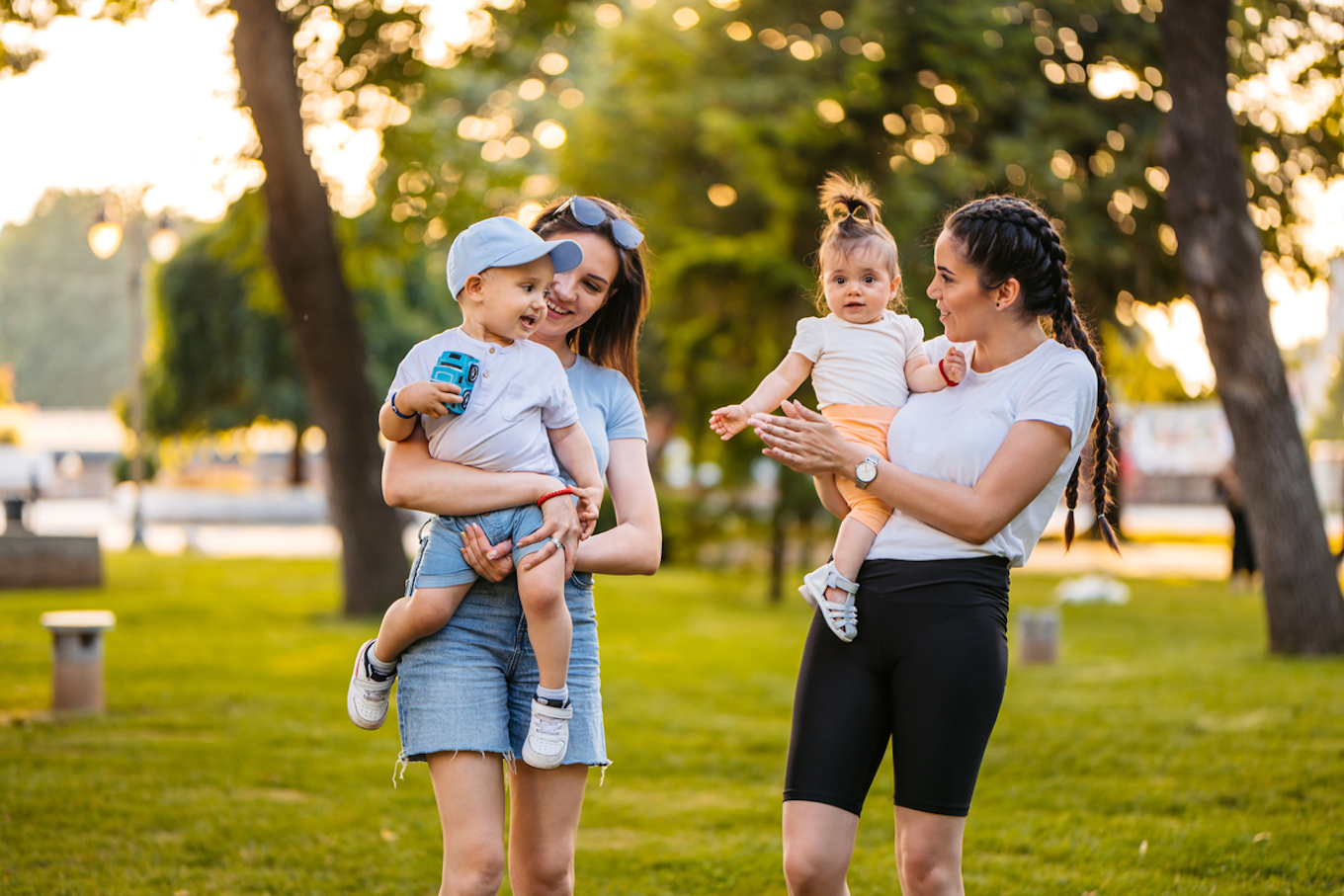
If our children see how we value our own friendships, they’ll likely do the same. Amy K. says she made sure she spent time with her friends and her children when her daughters were young. That way, her girls could see her around her close friends. “I’m a good friend, so hopefully they would watch me,” she says.




